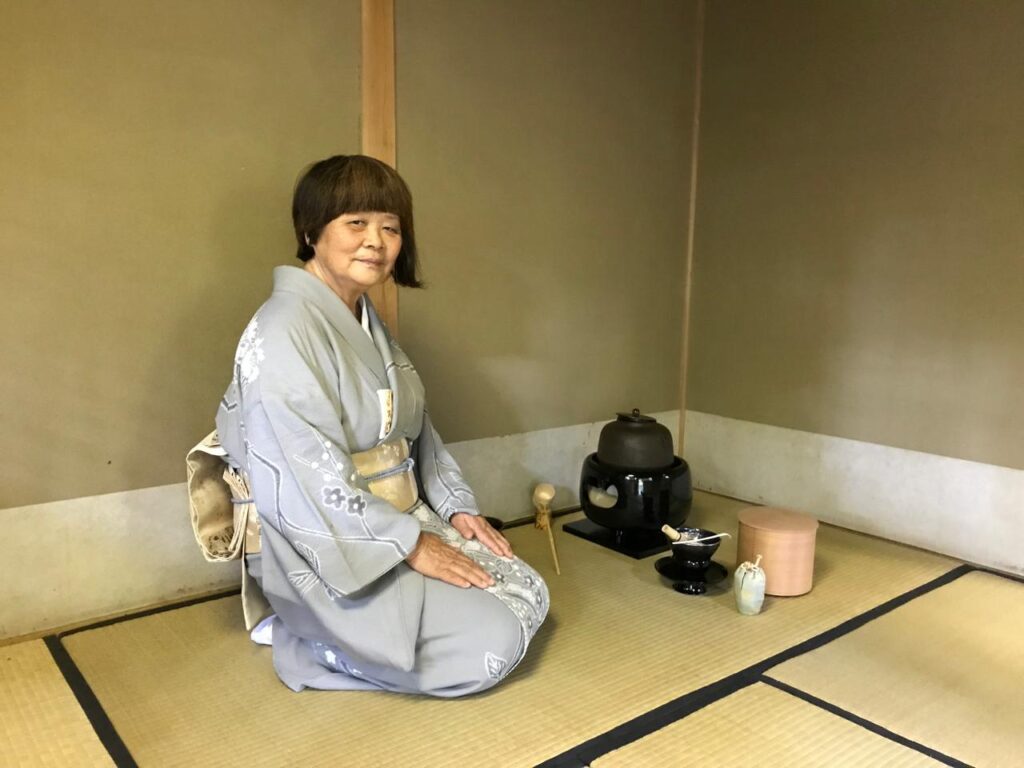Have you ever noticed how silence can say more than words in the right setting? That’s exactly what draws people in Dubai to Japanese tea ceremonies, a practice that values subtlety, precision, and mindfulness. While the city is known for its speed and excess, there are curated spaces where the timeless practice of chanoyu is kept alive. These ceremonies are less about drinking tea and more about observing each step—the folding of a cloth, the placement of a bowl, the turn of the wrist. They offer a rare moment to disconnect and reconnect.
Ceremonies are often held in cultural centers and private tearooms
In Dubai, Japanese tea ceremonies aren’t advertised loudly. They are typically hosted in Japanese cultural centers, language schools, or art spaces that emphasize quiet and authenticity. Some of the most immersive experiences happen inside private tearooms styled with tatami mats and bamboo utensils. You’ll find them in districts like Al Safa, Mirdif, or Al Quoz. These venues limit group sizes to preserve the ceremonial integrity. Some even feature specially designed tokonoma alcoves displaying seasonal flowers or scrolls, adding to the harmony of the environment.
Traditional elements are preserved with care and instruction
The hosts who lead these ceremonies often have training from Japan, sometimes under tea masters certified by Urasenke or Omotesenke schools. They begin with explanations of each tool—the chawan, chasen, and chashaku—and demonstrate the precise movements involved in whisking and serving matcha. Observers are invited to participate in small ways, such as bowing or handling the tea bowl with care. The ritual may also include seasonal wagashi sweets to balance the flavor of the tea. Respect, harmony, purity, and tranquility are always at the core.
Some experiences are paired with calligraphy, ikebana, or kimono workshops
What makes Dubai’s Japanese tea ceremonies even more special is how they are often paired with other cultural arts. Before or after the tea, guests might join a short calligraphy lesson, try ikebana flower arranging, or dress in kimono. These extensions help deepen the cultural immersion. We’ve seen packages offered on weekend mornings, where the entire session becomes a full cultural retreat. These experiences appeal to curious residents, visiting tourists, and even locals looking for a new kind of self-awareness.
Reservations are essential due to limited seating and scheduling
Because of the ceremony’s structured nature and the small number of participants allowed, attending one requires early booking. Most venues only host a few ceremonies per month, often aligning with Japanese seasonal festivals like Hina Matsuri or Tsukimi. Evening and weekend slots are the most popular. Some sessions are open to the public while others are invitation-only or require prior attendance at an introductory class. Booking directly with the cultural center or organizer ensures clarity on etiquette and what to bring.

Authentic tea utensils are imported or crafted locally by artisans
One fascinating detail is how some tea rooms in Dubai work with local potters to create tea bowls inspired by Japanese wabi-sabi principles. Others import entire sets from Kyoto or Nara. The attention to detail is profound—bowls with intentional imperfections, handmade whisks, or cloths folded precisely. Every tool has meaning. Organizers often explain that the choice of water temperature, matcha grade, or tea caddy affects the entire experience. This isn’t just tea—it’s living philosophy.
Etiquette is explained gently for first-time guests
If you’ve never attended a tea ceremony before, there’s no need to worry. Hosts explain each gesture and expectation in a soft, respectful way. You’ll learn when to bow, how to turn the bowl before sipping, and where to place your hands. Silence is encouraged during key parts of the ceremony, and conversations are typically reserved for reflection after the tea has been served. For Dubai’s diverse crowd, this kind of gentle guidance ensures that everyone feels welcome, regardless of background.
Some sessions offer outdoor desert settings for a unique contrast
In recent years, a few organizers have introduced outdoor tea ceremonies held at sunrise in the desert outskirts of Dubai. These events bring together the minimalism of Japanese ritual with the vastness of the Emirati landscape. Under a canopy or inside a temporary structure, guests sit on cushions arranged in a circle and experience the calm of tea-making surrounded by dunes. While not traditional in location, the essence of the practice is preserved, making it a truly unforgettable blend of two worlds.
Japanese expat communities play a key role in organizing ceremonies
Many of these events are made possible by Dubai’s Japanese community, who preserve the tradition through local associations or school groups. They often invite residents from other cultures to join, fostering connection through practice. Events tied to the Japanese consulate or educational institutes sometimes open their doors during cultural festivals, making it easier to attend a session without committing to a long course. These moments of openness help the ceremony remain accessible and welcoming.
Tea ceremonies have become a form of slow living in the city
In a place where life moves quickly and silence is rare, Japanese tea ceremonies in Dubai serve as intentional pauses. They appeal to those exploring mindfulness, intentionality, or cultural depth. Attendees say the ritual slows their thoughts, sharpens their focus, and leaves them feeling emotionally reset. It’s not just about learning a Japanese tradition—it’s about experiencing presence, something that often slips away in a digital and rushed world.
This article was prepared by the www.few.ae team to guide you through the serene and sacred world of Japanese tea ceremonies within Dubai’s rich multicultural fabric.
